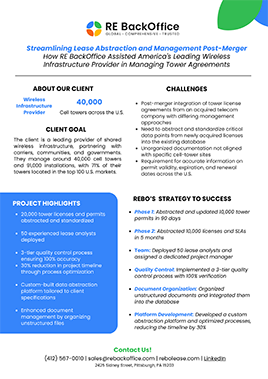
An Estoppel Certificate is a critical document in the realm of real estate, particularly concerning the landlord-tenant relationship. It provides essential information to third parties such as potential buyers of the property or lenders seeking to use the property as collateral. The primary function of an estoppel certificate is to confirm the status and terms of the existing lease agreements from the tenant's perspective, ensuring transparency and accuracy in transactions involving the property.
Purpose and Importance
Verification for Buyers:
When a landlord plans to sell a property, especially a complex asset like a shopping center, presenting an attractive and reliable investment is crucial. Potential buyers, naturally cautious, require assurances about the property's income stream and lease conditions. Estoppel certificates offer these assurances by providing verified information directly from the tenants, who disclose details such as lease terms, rent amounts, and any pending rent increases.
Security for Lenders:
Lenders considering the property as security for a loan also need to verify the property's income stability and the enforceability of lease agreements. Estoppel certificates help in this verification process, thereby influencing the lender's decision.
Contents of an Estoppel Certificate
An estoppel certificate typically includes:
- Confirmation of the lease term and expiration date.
- Current rent amount and the schedule of rent payments.
- Details of any security deposits held by the landlord.
- Confirmation of any rent increases or escalations.
- Statements regarding any defaults by the landlord or tenant.
- Information on any agreements or amendments outside the original lease.
These details help to clarify the existing conditions and obligations, providing a clear picture of the landlord-tenant relationship and the financial health of the leases involved.
Legal Binding Nature
Once a tenant signs an estoppel certificate, the contents become legally binding. This means that the tenant cannot later dispute the statements made in the certificate. Therefore, it is crucial for tenants to review the document carefully before signing to ensure all information is accurate and complete.
Timeline and Compliance
Typically, landlords provide tenants with a specific timeframe to complete and return the estoppel certificate, often within 10 to 20 days. This deadline ensures that the due diligence process for potential buyers or lenders is not delayed. Failure to comply within the stipulated timeframe can jeopardize the transaction, possibly leading to complications or even the collapse of the deal.
Benefits for All Parties
- For Landlords: Estoppel certificates help landlords present a transparent and attractive investment to potential buyers, potentially increasing the value and marketability of the property.
- For Tenants:By signing an estoppel certificate, tenants can affirm the terms of their lease, protecting their interests and ensuring there are no misunderstandings about their lease agreements
- For Buyers and Lenders:Estoppel certificates provide a verified snapshot of the lease terms and conditions, reducing the risk associated with the transaction and enabling informed decision-making.
Estoppel certificates play a vital role in real estate transactions, particularly in verifying the details of landlord-tenant relationships for third parties. By providing a clear and legally binding confirmation of lease terms, these documents facilitate smoother transactions, promote transparency, and protect the interests of all parties involved. Understanding the significance and correct handling of estoppel certificates can greatly enhance the efficiency and success of property sales and financing.


